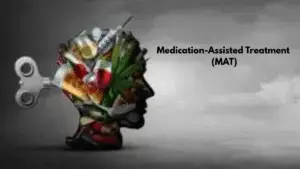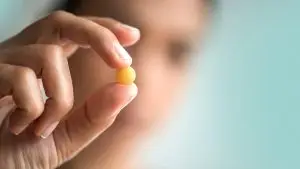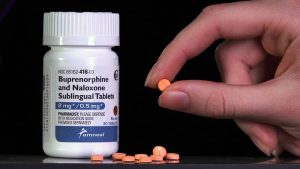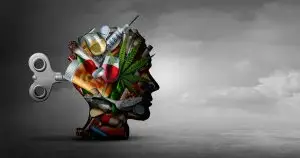
Is Medication-Assisted Treatment (MAT) Right for You? Understanding the Process and Benefits
Addiction is a chronic brain disease, and people affected by addiction can experience both emotional and behavioral changes. Though there are many ways of treating addiction, the effectiveness of those treatments varies based on the type that’s recommended. Medication-assisted treatment (MAT) is widely accepted as an effective way to manage addiction for some individuals. In this article, we’ll be discussing MAT in general and how it would work to treat certain types of addictions.

What to Expect with Naltrexone: Benefits, Uses, and Side Effects
Addiction is a complex disease that can have many different causes. But regardless of the root cause, addiction always involves changes in the brain. These changes can make it difficult for people to quit on their own, which is why medications like naltrexone can be so helpful. Naltrexone is a medication that helps to normalize brain chemistry and reduce cravings, making it an important tool in the fight against addiction.
What is Naltrexone?
Naltrexone is a medication that has been shown to be effective in treating addiction. It works by blocking the effects of drugs, such as opiates, on the brain. This can help to reduce cravings and prevent relapse. Naltrexone is available in both oral and injectable forms.

Understanding Depression: Symptoms, Causes & Treatment
Depression is a psychiatric illness that affects millions of people, but not everyone suffers from the same symptoms. This blog article will break down the different types of depression and treatment options available to help those who are struggling with their mental health.
What is Depression?
Depression is a mental illness that can be difficult to understand. It is more than just feeling sad or down for a period of time. Depression affects how you feel, think, and behave. It can lead to physical problems and make it hard to function in your everyday life.

Is Suboxone® Right for You? A Guide to Buprenorphine and Naloxone Treatment
Suboxone is a medication that is used to treat opioid addiction. It is a combination of two drugs, buprenorphine, and naloxone. Buprenorphine is an opioid agonist, which means it binds to the same receptors in the brain as other opioids such as heroin and morphine. Naloxone is an opioid antagonist, which means it blocks the effects of opioids. Suboxone is taken as a tablet or film that is placed under the tongue or inside the cheek. It is usually taken once a day.
Suboxone is used as part of a complete treatment program that includes counseling and behavioral therapy. It should not be used if you are pregnant or breastfeeding. You should not drink alcohol or use other drugs while taking Suboxone. If you stop taking Suboxone suddenly, you may experience withdrawal symptoms such as anxiety, sweating, shaking, nausea, and diarrhea.

What is Bipolar disorder?
Bipolar disorder also called manic depression, is a mental health condition that causes people to experience extreme changes in mood. Symptoms of bipolar disorder can include periods of depression, followed by periods of mania or hypomania. Although bipolar disorder can be a lifelong condition, it is possible to manage the symptoms with medication and therapy. The highs, or mania, can be very intense and last for long periods of time. The lows, or depression, can be just as intense and last for long periods of time. People with bipolar disorder often have trouble functioning in their everyday lives.
Symptoms of bipolar disorder
Bipolar disorder is a mental illness that causes extreme shifts in mood, energy, and activity levels. People with bipolar disorder can have periods of intense happiness, followed by periods of deep depression. These mood swings can be so severe that they interfere with everyday life.

Regain Control from Opioid Addiction: How Sublocade Supports Recovery
Opioid addiction is a tough battle, affecting millions of lives across the U.S. every day. It can feel like an overwhelming cycle, but the good news is, recovery is possible. One treatment that’s been gaining attention lately is Sublocade, a medication specifically designed to help people manage opioid addiction. But what exactly is Sublocade, and how can it help someone struggling with addiction?
In this post, we’ll explore what Sublocade is, how it works, and why it might be a game-changer in your journey to recovery. If you or a loved one is trying to overcome opioid addiction, understanding what this treatment offers can be a big step toward finding the right help.

How Therapy can Help With Mental Health Disorders?
It’s no secret that therapy can be expensive. But what if I told you that it could be worth every penny? In this article, I’ll be discussing how therapy can help with mental health disorders and why it’s such an important tool for those struggling with their mental health.
What is therapy?
Therapy, also known as psychotherapy or counseling, is a process of discovering and understanding your thoughts, feelings, and behaviors in order to improve your mental health. It can be an incredibly effective treatment for mental health disorders, providing you with the tools you need to manage your symptoms and improve your overall well-being.

Identifying Eating Disorders and Taking Action
Eating disorders are often brushed under the rug or misunderstood. They affect millions of people, impacting their bodies and minds in ways many of us might not even notice at first. Whether it’s skipping meals, obsessing over calories, or extreme exercise, the warning signs aren’t always obvious, especially when it’s happening to someone close to you—or even yourself. But catching the signs early can make a huge difference. Let’s talk about what to look for, why it matters, and how to get help if you or someone you know might be struggling.

Mental Health Awareness: Simple Ways We Can Support Ourselves and Others
When we hear “first aid,” most of us think about a bandage, maybe some CPR, right? But mental health first aid? Now that’s something we don’t talk about nearly enough. And it’s probably just as important—if not more. You see, mental health touches every part of our lives. It affects how we think, feel, and interact with the world. Yet, so many of us either ignore it or don’t know what to do when things start to feel off.
So, let’s get real. Mental health awareness is on the rise, and that’s great. But how do we actually take care of ourselves or support the people around us? You don’t have to be a therapist to make a difference. Just knowing some basics—like how to spot when someone’s struggling or what small steps you can take—can be a real game-changer. Let’s dig into this together.


